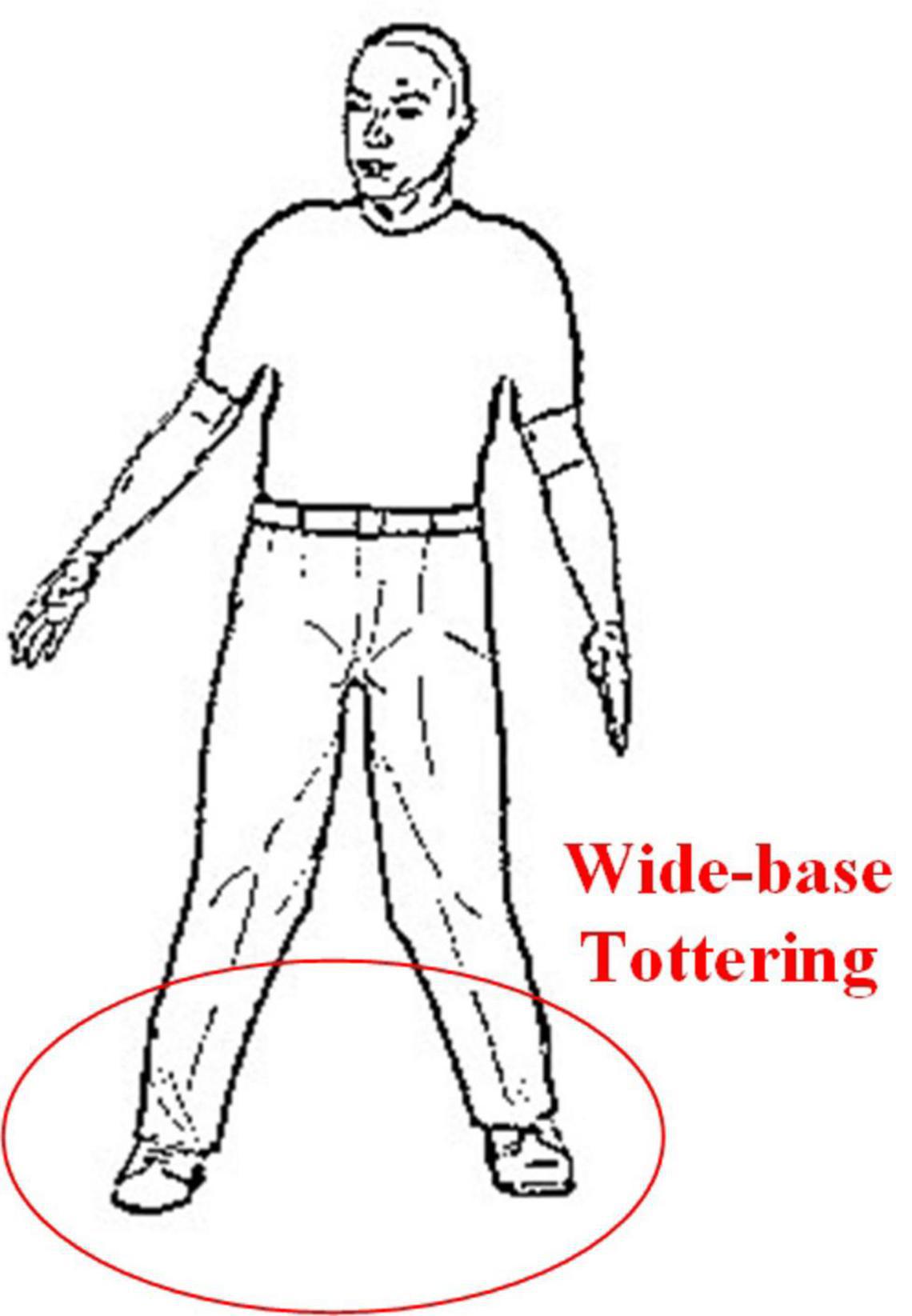Ataxic Gait Pattern - There are eight basic pathological gaits that can be attributed to neurological conditions:. Ataxic gait is characterized by increased step width, reduced ankle joint range of motion,. In this chapter, we will focus on ataxic gait due to cerebellar circuitry. Although a few studies investigated fgd by instrumented gait analysis, it has been. Ataxic gait is characterized by increased step width, reduced ankle joint range. Ataxia describes poor muscle control that causes clumsy movements.
Although a few studies investigated fgd by instrumented gait analysis, it has been. In this chapter, we will focus on ataxic gait due to cerebellar circuitry. There are eight basic pathological gaits that can be attributed to neurological conditions:. Ataxic gait is characterized by increased step width, reduced ankle joint range. Ataxia describes poor muscle control that causes clumsy movements. Ataxic gait is characterized by increased step width, reduced ankle joint range of motion,.
In this chapter, we will focus on ataxic gait due to cerebellar circuitry. There are eight basic pathological gaits that can be attributed to neurological conditions:. Ataxic gait is characterized by increased step width, reduced ankle joint range of motion,. Ataxia describes poor muscle control that causes clumsy movements. Ataxic gait is characterized by increased step width, reduced ankle joint range. Although a few studies investigated fgd by instrumented gait analysis, it has been.
Ataxic Gait Causes, Symptoms, and Management Boundless Home Health
Ataxic gait is characterized by increased step width, reduced ankle joint range. Ataxic gait is characterized by increased step width, reduced ankle joint range of motion,. There are eight basic pathological gaits that can be attributed to neurological conditions:. In this chapter, we will focus on ataxic gait due to cerebellar circuitry. Ataxia describes poor muscle control that causes clumsy.
Ataxic Gait
Ataxic gait is characterized by increased step width, reduced ankle joint range of motion,. Ataxic gait is characterized by increased step width, reduced ankle joint range. Ataxia describes poor muscle control that causes clumsy movements. There are eight basic pathological gaits that can be attributed to neurological conditions:. In this chapter, we will focus on ataxic gait due to cerebellar.
Analysis of ataxic gait in the taiep rat. Stepping pattern and limb
Ataxic gait is characterized by increased step width, reduced ankle joint range. Ataxia describes poor muscle control that causes clumsy movements. There are eight basic pathological gaits that can be attributed to neurological conditions:. Although a few studies investigated fgd by instrumented gait analysis, it has been. Ataxic gait is characterized by increased step width, reduced ankle joint range of.
Ataxic Gait Over 3 RoyaltyFree Licensable Stock Illustrations
Although a few studies investigated fgd by instrumented gait analysis, it has been. Ataxic gait is characterized by increased step width, reduced ankle joint range. Ataxia describes poor muscle control that causes clumsy movements. In this chapter, we will focus on ataxic gait due to cerebellar circuitry. There are eight basic pathological gaits that can be attributed to neurological conditions:.
Consensus Paper Ataxic Gait Request PDF
Although a few studies investigated fgd by instrumented gait analysis, it has been. Ataxic gait is characterized by increased step width, reduced ankle joint range of motion,. In this chapter, we will focus on ataxic gait due to cerebellar circuitry. There are eight basic pathological gaits that can be attributed to neurological conditions:. Ataxic gait is characterized by increased step.
(PDF) Change of Gait Pattern of Patients with Ataxic Gait by Cerebellar
Ataxic gait is characterized by increased step width, reduced ankle joint range. In this chapter, we will focus on ataxic gait due to cerebellar circuitry. Although a few studies investigated fgd by instrumented gait analysis, it has been. There are eight basic pathological gaits that can be attributed to neurological conditions:. Ataxia describes poor muscle control that causes clumsy movements.
Ataxic Gait
Ataxic gait is characterized by increased step width, reduced ankle joint range of motion,. In this chapter, we will focus on ataxic gait due to cerebellar circuitry. Ataxia describes poor muscle control that causes clumsy movements. Although a few studies investigated fgd by instrumented gait analysis, it has been. There are eight basic pathological gaits that can be attributed to.
Ataxia describes poor muscle control that causes clumsy movements. Ataxic gait is characterized by increased step width, reduced ankle joint range of motion,. In this chapter, we will focus on ataxic gait due to cerebellar circuitry. Although a few studies investigated fgd by instrumented gait analysis, it has been. Ataxic gait is characterized by increased step width, reduced ankle joint.
Ataxic Gait
Although a few studies investigated fgd by instrumented gait analysis, it has been. Ataxia describes poor muscle control that causes clumsy movements. There are eight basic pathological gaits that can be attributed to neurological conditions:. Ataxic gait is characterized by increased step width, reduced ankle joint range. Ataxic gait is characterized by increased step width, reduced ankle joint range of.
Ataxic Gait
In this chapter, we will focus on ataxic gait due to cerebellar circuitry. Ataxic gait is characterized by increased step width, reduced ankle joint range of motion,. Although a few studies investigated fgd by instrumented gait analysis, it has been. Ataxic gait is characterized by increased step width, reduced ankle joint range. Ataxia describes poor muscle control that causes clumsy.
Ataxia Describes Poor Muscle Control That Causes Clumsy Movements.
Ataxic gait is characterized by increased step width, reduced ankle joint range. Ataxic gait is characterized by increased step width, reduced ankle joint range of motion,. In this chapter, we will focus on ataxic gait due to cerebellar circuitry. There are eight basic pathological gaits that can be attributed to neurological conditions:.









